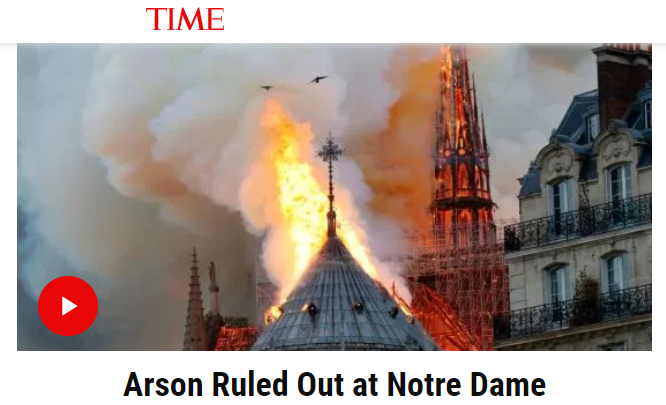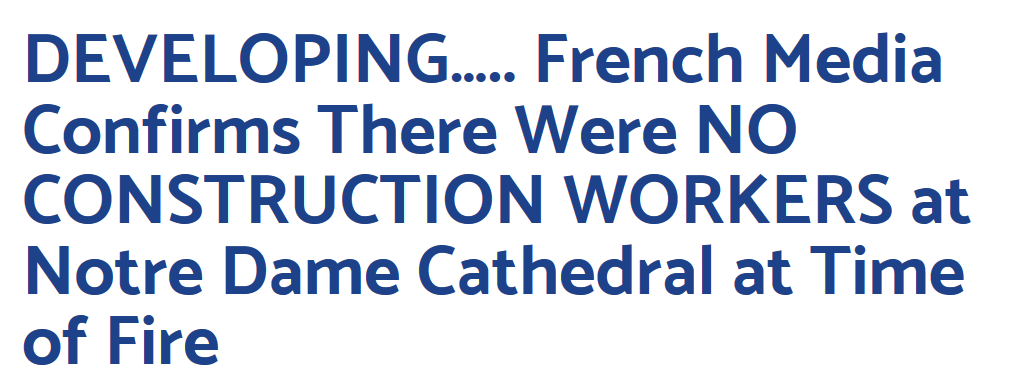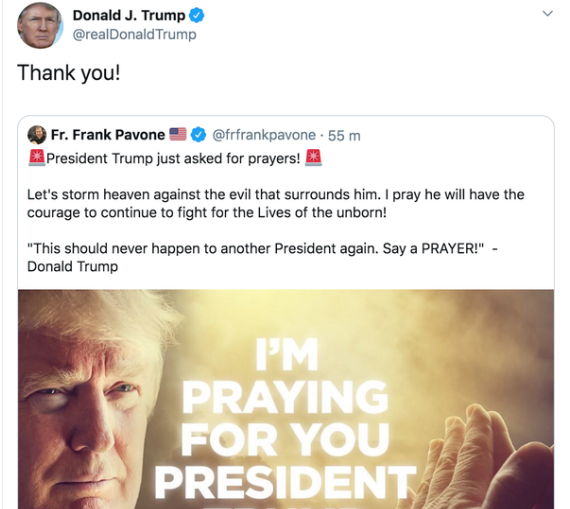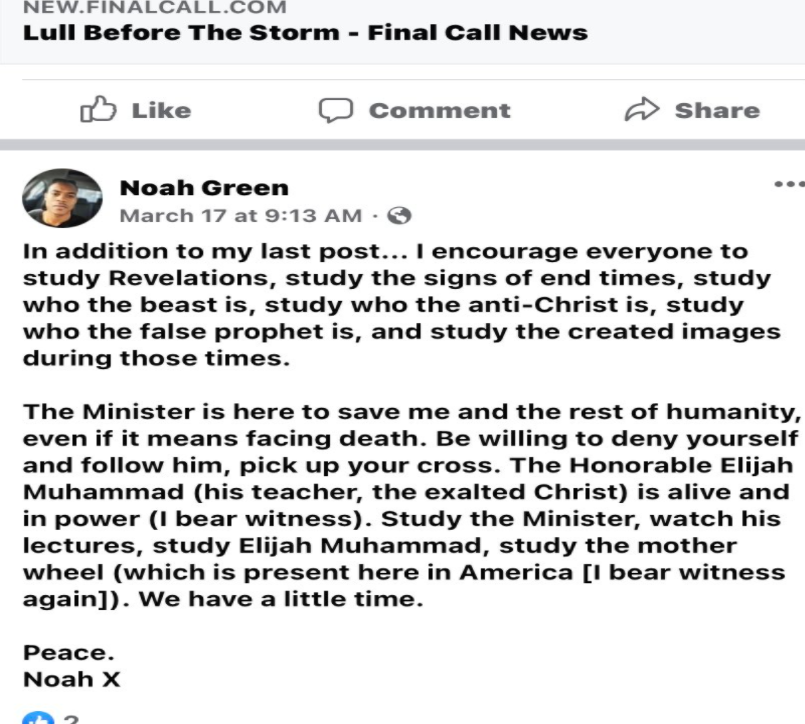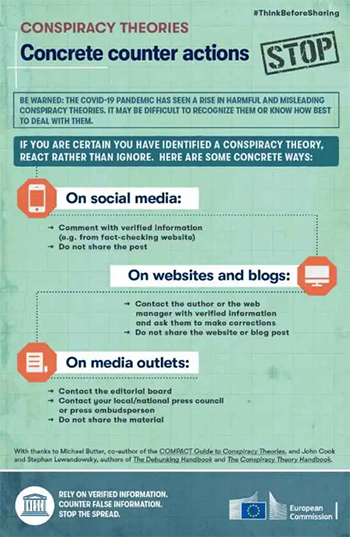but it appears that Weeks (Pentecost) may be our date as the now ‘completed feast’ + same theme in the alleged ‘storm at the lake’ [Lk.8:22-25] [version ; 2025-05may.30- ] |
| content : … we must know if our date could be this ‘Weeks’ (Pentecost) to rule out ‘the day of Atonement’ that is a problem for us : she is a serious date also yet as one still five endless months away (-see intro) ; here , to see what it could have said about ‘Pentecost’ since ofcourse it never wrote any “tongues of fire” lines 1-15 went surprisingly well where no ‘Joel’ section followed but ‘Acts’ 1:15-26 (sic !) ; promisingly Weeks seems to be ‘a double-feast’ that will be completed when the 144,000 leave — the interesting fulltext is (here) , but also do please see the host of notes in intro because this theme & links are rather complex … |
|
| for you Sir rather sure this is what you said — do get us this month or it won’t end well … we’re so exhausted |
|
theme
… at this point we reject all of ‘the book Acts’ – except for the first two chapters
that Esau stole from a gospel [-presumably John] and that he used as step-up
for his alleged jungle-adventures of a number of evangelists as his ‘book Acts’ ;
it’s true ,
of the many chapters several could contain a moved & corrupted real theme
but we’d compromize ourselves by even trying — sadly there remain enough
deeply corrupted NT chapters to restore our themes from …
why the ‘tongues of fire’ is a hoax
… though there is no doubt (!) that after his ascension Christ (in casu the Spirit)
was close to the first christians – and we had a line “but they (‘sons’) will not
know Christ as close as he is (-with us) now”, the many important themes also
closed with his ascension since the authority (Christ) that spoke them had left” ,
and any re-start about ‘the life of the apostles’ would create a precedent for any
later inserted corrupt conflicting theme because of the open-end situation
[as the same reason why we’re so careful with ‘Acts’] ;
and this is exactly what happened : Esau shrieked of pleasure seeing he could
insert some mysterious “tongues of fire” theme that would directly support the
‘Strange Fire’ of his boss Adam burning upon God’s sacred altar !
and consequently all the ‘charismatic type churches’ of today that are based on
this ‘tongues of fire’ hoax are by definition supporting that evil concept …
real theme : God accepts the scroll (-at Weeks)
… but now we’re creating a problem for ourselves —
even we now know that it was NOT about ‘tongues of fire’ we need to see what
this text can have said about Weeks (‘pentecost’) keeping in mind that the most
important aspect related to that day is “God accepting the restored scroll” ;
now please ,
we know that “the prisoners freed” [Eve, stone, 7 torches etc] is an integral part
of ‘the acceptance at Weeks’ — but does that (deliverance) happen at Weeks ?
[or is it , which we fear could happen . only to be executed “at Atonement” ..?]
Christ ascended (-and returns !) at Weeks (?)
… per the “40 days theme” (-see recent pages) it is not lógical that he remained
forty days on earth then leaving ten (9) days before Weeks ; while the text here
contains a weird phrase through a peculiar verb right at the start ,
saying “the day of Weeks will be completely fulfilled” which only can make
sense if beforetime it was NOT ! the same verb also shows in the Luke section
as a totally corrupted version of this theme (-see below) so that we have a good
chance that Weeks was considered as ‘a double-feast’ ! and probably directly
linked to “the working-together of the disciples & the 144,000” which we saw in
several NT-chapters now as a context suggesting He cóuld return at Weeks !
then please —
though Esau distorted the buildup , ‘Acts’ 1 contains “His ascension” ,
but we know that right befóre his (actual-) ascension the male & female Original
appeared next to him [-which Esau distorted as ‘the transfiguration’] and we must
assume that He also explained the disciples that this was a foreshadowing :
namely “of the final Weeks in which those gorgeous beings would be rescued” !
the fact that this foreshadowing happened must imply that He told them more
[-as that which we could trace so far] , which was this ‘Acts’ 2 1-15 ! implying
an ‘unfinished business’ as “the complétion of Weeks : when he will return” !
another very important aspect is ‘how His return would close the sacred time‘
as the seven weeks until the feast of Weeks – when God will accept the scroll ,
where God stárted that time-frame by descending (!) upon mt.Horeb where
fire and ‘trumpets’ featured — like Christ returns at the closing with ‘trumpets’ :
you see the analogy and it sure is a strong one
[however , in the section below the great problem here will be addressed …]
this ‘Acts’ section elsewhere (‘cross-reading’)
… looking for key-words and phrases the term ‘wind + blowing’ as said of the
tongues of fire it also showed at “the storm at the lake event” in Luke and that
combined with the same verb “completely fulfilled” — what is the chance ? :
Acts 2 : 1 Luke 9 : 51
“when will completely be fulfilled “when will completely be fulfilled
the day of + Pentecost (‘Weeks’)” the day of + the ascension (sic !)”
b b
the house = scroll (oikON=bibliON) the face = scroll (prosopON=bibliON)
3 54
tongues of + fire fire + come down from + heaven
(standing on clouds + angels) (standing on clouds + angels + come down)
2 Lk.8:23
rushing + mighty + wind storm of + wind + came down
(trumpet + sounds) + completely be fulfilled
6 Lk.9 : 53
[=Jacob] will [not] be gathered Samaritans=Jacob + not + received=gathered
here , interesting for us is the link ‘Pentecost = ascension’ strongly suggesting
that Esau had séen how Weeks was that date (and not ’10 days before it’) ;
then “something is coming from heaven” – read : Christ standing on the clouds ,
while in the restored text “someone [is nót] [gathered] ” namely the people Jacob ;
for us this cross-reading – however corrupted – is very important since the context
is matching and therefore supporting a Weeks-date ;
now ,
we could try stitch both Luke sections together but that will be a hopeless job
since Esau spilled much (for us-) important information by inventing ‘a start and
end of both by him separated sections’ ,
yet the above shown buildup is Legal enough for us to support our case
after line 15 here (-no ‘Joel section’)
… though everyone knows the infamous “your sons and daughters will prophecy
and your old ones will dream , before the sun will go dark and the moon blood” ,
Esau needed the by him corrupted lines to support his ‘tongues’ hoax here
[if it wasn’t already clear enough what you & we are up against …] ;
and though originally a closing has showed AKIN to the Joel lines (-see below)
it was NOT ‘quoted from Joel’ because the buildup (of 1-15) is a different one :
because of God accepting the scroll Christ will collect the 144,000 ,
yet Jacob will be left behind , saying in confusion “but didn’t we read in our scroll
[but as KJV !] that He would take us ?” — since thé main theme still is ‘the scroll’ ;
and however heartbreaking this event (will be) ,
it MUST have said something about ‘the reason’ : namely that his pastors will
have rejected the restored scroll and preached the KJV to them [-as attested] ,
so that they don’t know nothing about the Eden-covenant as being ‘lawless ones’
where their 1 condition they will not have fulfilled ,
namely “dying to the flesh” — because of the same corrupt ‘fire tongues’ here !
hence ,
the section ‘Acts’ 1:15-26 fits much better after this :
inthere was never no “Peter and 120 disciples” but ‘the 144,000’ ,
and no “Judas whose belly split open in the field” but the corpse of ‘Adam’
that will have fallen upon the field – as in Mt.24 ‘the carcass’ ! while at the end
the word ‘witness’ shows that must be “the 144 unto Jacob”, and that the people
will be delivered as to complete the theme of them left behind (in 1-15 here) ;
Esau simply moved this section to ‘chapter 1’ as if this happened “after Christ
had ascended” — for us another clue that His ascension & return may be Weeks
B) the ‘book Joel’ – virtually Lost
… because corrupted with an Insane hate – you can feel it through all the lines ;
Esau was very happy with the text that his evil fathers left him ,
“and it will happen in those days , that I will pour out my spirit on all of the flesh ,
and your sons and daughters will prophecy , and your older ones will dream ;
then the sun will go dark and the moon will become as blood” ,
yet only 2 words are genuine in this whole paragraph , and though the sun
indeed will go dark that phrase did NOT appear HERE
this section in Joel 2
before the ‘sons and daughters’ (in 28) as the only original words , line 27 is
about “My people” that can only be “our Originals saved from mystery-Babylon”;
consequently next line 28 about “the sons & daughters” is “about the 144,000”
as the ones rescued from earth ;
oftentimes the “my servant the Anointed (Christ) will bring you to tsiun” follows
that rescue from earth , so that KJV 29 ,”on the·servants + and the·maids” as
tampered roots was “my servant + the Anointed (shphchth=mshchh)”
[and is not linked here ‘to the disciples’ as ‘servants and handmaids’ as the
concepts of “them working together with the 144”] ;
after this ,
the line “the sun changes (!) dark and the moon as blood” shows tampering
and must have been “restored in their Original body” also becaise anóther
“sun and moon going dark” already showed in previous line 10 (ánd in ch.3) ;
so that the buildup makes it impossible that ‘Joel lines were used here’
Joel
looking at the three chapters ‘Joel’ the book is virtually lost :
the first chapter shows ‘locusts’ and indeed may have been about that theme
so that the bulk (2-27) of chapter 2 can be “the prisoners freed” [-as the stone ,
the seven Torches and the eden-mother] as the theme belonging to Weeks
where even “the trumpet blown” shows (-in 1 and 15) ;
perhaps – but how ? – chapter 3 can be the judgment of ‘the Ammon sons that
stole aspects óf our Originals’ since “casting the lot” and “gold (-dust)” shows ;
yet it will be a Hell of a job to restore any sensible text from that mess …
the ‘great trumpet blown’ : at Weeks (?)
… this aspect is interesting for us —
like in this ‘Acts 2’ chapter also Joel 2 has the trumpet :
the chapter opens with “the trumpet + blown + in tsiun” and the same phrase
appears in line 15 so that óne must have written “the sons blow the trumpet”
and the other one “the trumpet is blown fróm tsiun” ,
since the idea is that “when the sons will start restoring the scroll — officially at
the day of Trumpets — they ‘blow the trumpet’ as “answering God concerning
His request to restore the Scroll”, while in turn “God responds to that answer
through “the great trumpet in That Day” : but which one — at Weeks ?
[perhaps ‘the great trumpet’ here is ‘some dimensional-type sound’ who knows
caused by ‘the sky receding back’ : it hardly can be imagined “as God’s voice”]
though Leviticus has “the trumpet starting the Jubilee at the day of Atonement”
the question is whether that is logical or was corrupted : if a trumpet relates to
‘answering someone’ then isn’t “accepting (-the scroll at Weeks)” ‘an answer’ ?
while during the time of old-Ishral ,
the trumpet was sounded to have the people from camping to go on the move
again (‘as the 144 going ?’) ór to assemble them (‘the 144 from earth & and the
prisoners freed from mystery-Babylon ?’) ,
while ‘Atonement day’ is not a logical time to start the (great-) Jubilee year :
but instead ‘at Weeks’ when He had all the ‘conditions’ back , for the future
by having accepted the (correct-) scroll as their declaration of understanding the
conditions through which He would bless them … isn’t that much more logical ?
yet still : the day of Atonement as possible date
… though the above all sounds very possible we have two major problems still :
first , that Weeks belongs to ‘the set of (divine-) Spring feasts’ , and because in
real-time we started the scroll at Trumpets one would expect that ‘the next event’
being ‘the start of the tribulation’ would occur at the day of Atonement ;
namely as the day that “the one animal was sent into the wilderness (‘tribulation’)”
while the other animal — as the 144,000 — was sacrificed (‘died to flesh’) ;
to be honest :
the greatest problem right now is ‘Atonement still being five more months away’
which feels as a murderous barrier , and even “the animal sent in the wilderness”
appears to settle the argument perhaps we’ve a way out (-how strange to say) :
apart from the described reasons above ,
perhaps we can ‘include Atonement within Weeks’ as “within that sacred seven
weeks time-frame” by considering the Fall feasts as an ‘extended’ Fractal that
shóuld have been part of the original “seven weeks” but was placed outside it
(‘after it’) because of the real-time issue (‘problem’) :
now please ,
akin to the above “God accepting all the required conditions , at Weeks”
[and let’s hope it is THIS Weeks , in June] does that not imply that He also has
accepted “the feast of Trumpets – though in real-time after Weeks – as the time
that we stárted the scroll” .. ?
and further : if He has all the required conditions , doesn’t that mean He also
gave the green light for Atonement (‘the tribulation’) and the right away days
of Tabernacles (‘the restoration of Eden’) ?
or rephrased : we went through both latter already !
since Atonement was about the ‘key’ Attribute and about “the one animal that
died to it’s flesh” (-so that óf that holiday only ‘Jacob in the trib’ will need to
come to pass , still) ,
and concerning Tabernacles which was about “the 70 bulls theme” and by
extension about the 144,000 , 10 and 40 number , we had these ,
(-so that only “the literal restoration of Eden still will need to come to pass) :
is this silly thinking .. ?
all of this is included in His acceptance of the scroll ,
and for some reason it feels important “to bring them back in those 7 weeks”
as the original sacred fractal and not the stretched-out-one as it was until now
II
[part II – ‘Acts’ 1:15-24 :]
… now this section also turned out unexpectedly well ( Sir ..) —
indeed the shown template was not about ‘the evil betrayer Judas’ but ‘Adam’
and the first give-away “120 (-disciples)” are “the 144,000 as we the remnant” ;
the buildup is very solid matching the type narrative in prophets [-ofcourse] ,
so that this picture emerges :
He takes his disciples at the day of Weeks (?) to the place of his ascension
where first ‘the male and female Gorgeous appear next to Him’ that has
Peter exclaim “will we really tabernacle in those beautiful beings , Lord ?” ; <<<
followed by lines 6-7 (of ‘Acts’ 1) yet where they ask him “what will happen
concerning your return and the restoration of Eden” ,
after which He tells them the things as described in the fulltext on this page” ;
the buildup here includes “the slaying of the Ammon sons” [as Esau on earth]
which also features in the overview God presents in prophets — also because
the Ammon sons are THE direct enemies of us 144 and because their wicked
doing will have lead virtually all of Jacob into the Trib ;
hów both part I & II succeeded so well is a mystery — akin to the Eph.6 one :
oftentimes Esau completely mutilated the structure (buildup) of chapters so
that the above mentioned ‘book Joel’ will remain impossible ,
yet in other cases he went for the -word-for-word type corruption leaving the
theme-changes intact which also in this case is our pure Luck —
he projected ‘Judas’ over the ‘Adam dying’ narrative, gambling at the hate of
christians against “the evil figure Judas that betrayed their Lord” so that they
would fully agree with “Judas’ intestines splattered over the field”
by which however Esau gave us a clue about ‘our Originals’ !
closing of the New Testament — of the entire Canon
… the type closing restored here feels important —
both as the promise by , and the conclusion of the sacrifice that He offered
when repeating here the restoration of all of Eden and speaking these words
[hopefully-] ‘at the day of Weeks’ ,
and curiously His mentioning at that day (?) of “then the tribulation will start”
somehow resembles the presented idea above about “Weeks as the start
where next Atonement and Tabernacles are included” —
suggesting that our job may be completed at the day of Weeks , soon
corruptions : total — only restorable when knowing what to look for
theme : context lines 1-15 100% , syntax [without 9-10] VERY high ,
context & syntax of part II (Acts 1:15-26) : very high ,
though a line may be lost as bridge
fulltext : below
‘Acts’ 2 (1-15 + 1:15-26)
[Christ tells this to his disciples just before his ascension
fulltext : after they saw a male and female Original flanking him :]
1
and the day of Weeks will be completely fulfilled [shown : ‘pentecost’]
when I will gather all of the remnant (144) from the earth ;
2
because at the appointed time + [indeed ‘at Weeks’ ?]
the sound of the trumpet will come to pass [KJV: sound + happen]
as the answer of God unto the sons (‘you & we’) + [pheromenês=apokrisis]
that he accepted the scroll + [pleroó=a-podechomai]
which they will have restored ; [kathémai=katartizô !]
3
and they will see the Son of man standing upon the clouds ,
and his angels will gather each of them (144) unto him ; [kathizó=athorizô]
4
and I will bring the remnant to the mountain of God , [hapantes=hypoleimma]
where he will restore you in his sacred people (‘Originals’) [< probably] [KJV: holy]
as the body that you will receive ,
and you will rejoice together with them (144) ; [part I b :]
5
but behold ! ,
Jacob as the lawless people + [‘Eden-covenant related’] [eulabés=anomos]
will be left behind on earth , [katoikeó=kataleipô]
as all those that will remain in the world ;
6
because when the sound of the trumpet will happen , [KJV: sound + happen , as 2]
the people will nót be gathered together , [KJV: gathered together]
and they will be confounded ,
because every one will have thought + [akouó=dokeô]
that the church would be taken by me ;
7
and they will be all beside themselves and astonished ,
saying one to another : behold ! ,
are not all of us the saints (‘believers’) that would be taken ? ; + [GAlilaiOi=hAGiOs]
8
for have we not read every one in our own scroll (KJV !) +
what he has promised unto us ? ; [gennaó=epangellomai]
9 [9-10 : w/ utterly corrupted :]
but because the evil sons of Esau
will have corrupted the scroll of God ,
[…… perhaps “they will not have answered Him concerning Eden” ……]
10
while the Pharisees and the scribes
[….. perhaps “will have changed Mý words” ……]
[….. unknown …..]
11
therefore the people Jacob will have kept (?) théir sayings (‘lines’) ,
and transgressed (?) against the covenant (?) of God ; [per 5 ?]
12
and though the sons of Ishral + [‘you & we’]
will have restored his scroll , [diêporoun=biblion]
and will have said unto them :
read you what God (really-) spoke to you ! ; +
13
the pastors of the people will have mocked them , [heteroi=hiereus !]
saying to themselves :
the sons are full of deceit ! ; [in prophets : ‘they don’t worship our King (Christ)’]
14
therefore the pastors will reject the scroll of (‘by’) the sons [histémi=atheteô]
and will have withholden it from their people ,
and have preached to them the corrupted scroll (KJV) +
as the one that had been composed by their fathers ; [‘the Reformation’]
wherefore they will not have died to their flesh + [b/c ‘tongues of fire’ !]
as not having fulfilled the will of God ;
15
and because these will not have become humble + [methuó=tapeinoô]
like all of the remnant (144) will have become , [hupolambanó=hypoleimma]
they will be given over to the hour of trial + [see ‘Philadelphia’]
that is the tribulation ;
next part II : Acts 1:15-26
15
but befóre those days ,
I will have gathered the remnant from among their people , [petros=hypoleimma]
as the sealed ones that will be the hundred forty four thousand ; [ochlos=chilias]
16
and while I will be bringing the remnant of Ishral to tsiun , [16-a : so prophets :]
God will make his sacred people to return to there + [‘our Originals’]
from the city of (mystery-) Babylon ; [dABid=BAbylôn]
b
and the adm-man (‘Adam’) that had become the enemy [Judas=Adam]
as the one having worked together with the nations (-of demons) +
17
will have been punished by then , [katarithmeó=kolazô]
as having died for his evil (-doings) ,
and the remnant will see his corpse ; [< so prophets] [+Mt.24] [diakonia=ptôma]
18 [18-25 : so prophets :]
since he had given over the sacred ones (‘Originals’) + [prophets : betrayed + given]
unto the nations of demons + [adikias=demonos]
that wanted their features , [‘appearance’ prénés=prosôpos]
and they tortured them as having shed their blood ; [“whore drunk of blood” Rev.]
19
but the nations that dwell in (mystery-) Babylon + [jerusalem=babylon]
will have become terrified when the sun will have darkened , [kaleó=skotizô !]
and they will be wroth that he will no longer protect them [ekeino=orgizô]
wherefore they will slay the adm-man (‘Adam’) + [hakel+DAMA-ch]
so that his corpse will fall down upon the field ; [haima=ptôma]
20
then will have been fulfilled what is written in the scroll : [Is.14 & others]
he will descend to Hades because of his iniquities [epaulis=hadês]
as having been judged by God ,
also for the scroll that the adm-man (‘Adam’) ordered (?) to be changed ; +
21
wherefore God will assemble his army as the sons of the remnant (144)
who will slay his (Adam’s) Ammon sons +
as the ones having executed that evil (‘changes’) ; [‘as Esau on earth’]
22
then He will send the sons and daughters + [‘complete 144’]
unto their people that had been left behind on earth
to be witnesses unto them of their restoration by God ; + [KJV: witness]
23
for they will comfort the people Jacob + [Joseph=Jacob]
that will have become very tired in the Tribulation , [kaleó=egkakeô !]
and will have been oppressed by the nations of demons ; [kaleó=kataponeô !]
24
but when the people will have sworn (-allegiance) unto God
he will save the souls of all
that will be freed from their flesh when the nations (-of demons) have slain it ;
25
then their soul will be brought to tsiun
and God will also restore them in their sacred ones (‘Originals’) ,
and they will dwell in their own (eden-) land ; [or ‘all of you’]
26
[corrupt / added — needed : ‘final admonitions to His disciples’]
9
and when he had spoken these things , while they beheld , he was taken up ;
and a cloud received him out of their sight .
end >> and the end of the New Testament
end of section
Acts 2
[start : the “completely fulfilled” : if Weeks is ‘a double-feast’ , see intro ! :]
1
“And when the day of Pentecost was fully come, they were all with one accord in one place.”
1
and – [..] [..] the day of – pentecost (or : ‘Weeks’) – (will be) completely fulfilled
b
(when-) they=I (will) were=gather +
c
all of – (the-) together=remnant [‘144,000’] (HomOthuMAdon=HypOleimMA)
d
on=from – the – same=earth (?) ;
note :
a) the scholars have “when Pentecost was fully come” but as a line causing them problems ,
however not when it is a double-feast !
b) the ‘together’ also shows [Jn.4:36] in the ‘disciples and sons working together’
and even in THIS chapter , later in “the Joel prophecy” ;
[next 2 :
very possible — for we started the scroll “at the day of trumpets” as óur ‘response’
so that the trumpet sound at His return may be “the answer of God (-concerning that)” ;
while Esau saw “something coming down from heaven” :]
2
“And suddenly there came a sound from heaven as of a rushing mighty wind,
and it filled all the house where they were sitting.”
2
[=because] – (at-) (that-) suddenly=appointed time (aphnó=prothesmia)
b
(the-) sound of – (the-) as=trumpet (hósper=salpigx) – (will) happen
c
(as-) (the-) rushing=answer (pheromenês=apokrisis , as shown) of +
d
wind=God (pnoês=theos , as shown) – (unto-) (the-) violent=sons (biaios=yhios) [‘you & we’]
e
and=that – it=he fills=accepted (pleroó=a-podechomai) +
f
all of (or ‘from them’) – the – house=scroll (oikon-biblion , as shown) +
c
where=which – they (will) were=have – sitting=restored (kathémai=katartizô) ;
[next 3 :
can be many things but we go for the usual expression :]
3
(a) “And there appeared unto them cloven tongues like as of fire,
(b) and it sat upon each of them.”
3
and – [+they] (will) see – (the-) them=son (autois=yhios) of +
b
through + divide = man + standing – (upon the-) tongues=clouds (glossá=nephos) ,
c
as=and – [+his] fire=angels (puros=aggelos , as shown) – (will) sit=gather (kathizó=athorizô) +
d
each of – them – besides=unto – [..] one=him ; [‘unto him each of-them’]
[next 4 :
Esau saw ‘something being done unto them’ :]
4
(a) “And they were all filled with the Holy Ghost,
(b) and began to speak with other tongues, as the Spirit gave them utterance.”
4
and – they=I (will) filled=bring (plêthynô=epagô) – (the-) all=remnant (hapantes=hypoleimma)
b
(to-) (the-) spirit=mountain (pneumatos=oros , as shown) of – holy=God (hagios=theos) ,
c
[very corrupt :
“and began to speak with other tongues, as the Spirit gave them utterance.”
what we need is “all of you restored in the Original” + probably “you will rejoice with them” ;
the alleged ‘utterance’ is a bizarre root (apo + phtheggomai)
which can have been ‘rejoice’ (-agalliaô) (compare phth-eggomai) ,
–
“and he will restore all of you in his tonges=sacred different=people” [c-e : attempt :]
d
as – the – spirit=body (?) – (that-) [+you] (will) give=receive (‘close’) ,
e
(and-) [+you] (will) utter=rejoice – (with-) them (‘144,000’) ;
[next : juxta :]
5
“And there were dwelling at Jerusalem Jews, devout men, out of every nation under heaven.”
5
[=but] – were=behold ! ,
b
jews=Jacob – (as the-) devout=lawless (eulabés=anomos) – men=people +
c
(will be) dwell=left behind (katoikeó=kataleipô) – in=on – jerusalem=earth ,
d
from=as – all – (the-) (ones that will) nations=remain (?) +
e
[..] [=in] – the – heavens=world (ouranos=kosmos) ;
note :
.. first having kept (d-e) as “among the nations (-of heathens) upon the world” but because
now ‘nations’ would be the subject it was difficult “to write that [subject] Out , in next line 6” ;
therefore it was best to confirm the “left behind + on earth” with a similar clarifying phrase ;
6
“Now when this was noised abroad, the multitude came together ,
and were confounded, because that every man heard them speak in his own language.”
6
[=because] (-when) – the – sound of – (the-) this=trumpet – (will) happen [‘as in line 2’]
b
the – multitude=people (‘Jacob’) – (will) [+nót] (be) gathered together ,
c
and – [+they] (will be) confounded ,
d
because – every – one – (will have) heard=thought (akouó=dokeô) +
e
(that-) (the-) dialect=church (dialektos=ekklêsia) +
f
(would be) speaking=taken (laleó=halôsos) – the=by – own=me ;
note :
… this is not about the deluded faction promoting a “mid-trib” or “post trip” “rapture” ;
7
“And they were all amazed and marvelled, saying one to another,
Behold, are not all these which speak Galilaeans?”
7
and – they (will be) – all – beside themselves – and astonished ,
b
saying – one – to – another :
c
behold ! , are – not – all of – these=us +
d
[swapped :]
the – galileans=saints (GAlilaiOi=hAGiOs) – (that) (would be) speak=taken (‘as in 6’) ? ; +
8
“And how hear we every man in our own tongue, wherein we were born ?”
8
[=for] – (have) we – how=not – hear=read – every – one – (in-) our – own – dialect=scroll [KJV] +
b
[swapped :]
which=what – we=he (has) born=promised (gennaó=epan-gellomai) – (to-) in=us ? ;
end of part I — the rather sure restoration section ;
part II :
the restored context is álso Solid — yet not so sure as part I :
because next two lines 9-10 are absolute nonsense as Esau’s ‘grocery list’ that
may have contained vital information concerning “the corruption of the Scroll”
because of the shown many names , wherefore it can have said for instance ,
(9)
[=but] (-because) – (the-) elamite=evil – parthians=sons of – [..] medes=Esau
b
[..] (have) dwell=corrupted – the – mesopotamia=scroll of – judea=God ,
c
[…. something like “they will not have answered Him concerning Eden” ……]
here ,
it has to refer back to the “lawlessness” (in 5) and also to “the trumpet as answer”
in line 2 so that now two groups will have a different outcome át that trumpet]
(10)
[=while] – (the-) phrygia=Pharisees – and – [=scribes] +
b
[….. probably something like “will have changed Mý words” ……..]
c
[……. unknown …….]
from lines 9-10 ,
“Parthians, and Medes, and Elamites, and the dwellers in Mesopotamia, and in Judaea,
and Cappadocia, in Pontus, and Asia ; Phrygia, and Pamphylia, in Egypt, and in the
parts of Libya about Cyrene, and strangers of Rome, Jews and proselytes,”
[the continuation seems possible :]
11
“Cretes and Arabians, we do hear them speak in our tongues the wonderful-works of God.”
11
[+therefore] (the-) cretans=people of – [..] arabs=Jacob +
b
(will have) hear=read (‘as in line 8’) – théir (Esau’s) – talking=sayings (‘lines’ – Negative)
c
[attempt – but anyway the ‘our’ was misplaced :]
–
(as-) the – our=changed – tongues=words (glossá=logos) – (in-) the – great=scroll of – [..] God ;
[next 12-13 : attested :]
12
“And they were all amazed, and were in doubt, saying one to another, What meaneth this ?”
12
and (though-) – (the-) all=sons (pas=yhios) of – and=Ishral [‘you & we’]
b
(will have) amazed=restored – other=his – bewildered=scroll (diêporoun=biblion)
c
(and-) (will have) said – unto – other=them :
d
be=read (-you) – whát – this=God (touto=theos) – (really-) willing=spoke – (to-) ever=you ! ; +
13
“Others mocking said, These men are full of new wine.”
13
[..] (the-) others=pastors (heteroi=hiereus !) of [+the people] – (will have) mocked [+them] ,
b
saying (-to themselves) :
c
(the-) this=sons (hoti=yhios) – are – full of – sweet wine=deceit ! (gleukos=dolos) ;
[next :
we absolutely néed “that they withhold the (restored-) scroll from their people” ,
yet we cannot let thém ‘speak’ here for already in next 16 the Joel prophecy starts :]
14
“But Peter, standing up with the eleven, lifted up his voice, and said unto them ,
Ye men of Judaea , and all [ye] that dwell at Jerusalem, be this known unto you ,
and hearken to my words :”
14
[=therefore] – (the-) peter=pastors (petros=hiereus)
b
(will) stand=reject (histémi=atheteô) +
c
(the-) together=scroll (suN=biblioN) of (‘by’) – the – eleven=sons (Hendeka=yHios)
d
(and-) (will) lift up=withhold (-it) – (from-) him=their – [..] voice=people ,
e
and – (will) say=teach – (to-) them – (the-) judeans=corrupt (?) – men=scroll [KJV]
f
and=as – the – one dwell=composed – (by-) all=their – jerusalem=fathers ; [‘the Reformation’]
g
[what next ? — the most important must be ‘the flesh’ :]
–
this=wherefore – [+they] (will) you=not – know=die – (to the-) be=flesh [sic : ‘wherefore’]
h
[=as] – (having) hearken=fulfilled (?) – the – words=will of – me=God ; +
15
“For these are not drunken, as ye suppose, seeing it is [but] the third hour of the day.”
15
(and-) because – these – (will) not – (have become-) drunk=humble (methuó=tapeinoô)
b
as=like – you=all of – (the-) suppose=remnant (-had become) (hupolambanó=hypoleimma) ,
c
[no new subline :] [c : as in ‘the Philadelphia church’ :]
–
it=they (will) (be) is=given over – for=to – (the-) hour of – third=trial (trite=peira)
d
(that is-) the – day=tribulation (hêmera=thlipsis no match) ;
[part II : key-words in bold :]
15
“And in those days Peter stood up in the midst of the disciples, and said ,
(the number of names together were about an hundred and twenty ,)
15
[=but] – in=befóre – those – days [< repeated confirmation – as in prophets]
b
[+I] (will have) rise=gathered – (the-) peter=remnant (144) (PEtrOs=hyPOlEimmA)
c
in=from – among – the – disciples=people (mathêtês=démos) ,
d
[as-] (the-) said=sealed ones (?) (eiPen=sPhragizô) – (that) will be +
e
[‘multitude’ (-ochlos) can have been (-chilias) ‘thousand’ ,
and ‘names’ (-onomatON) (-hekaton) ‘hundred’ shown next :]
(the-) [=one] – hundred – on=and – twenty=forty – [=four] – multitude=thousand ;
[next 16-17 :
because in 18 ‘Adam did something with our Originals’ ,
– we need ‘Adam’ here [= ‘Judas’]
– we need a reference to ‘our Originals’
– we need ‘Babylon’ [= best option is ‘David’]
– we need ‘an action of the remnant concerning this matter’
– we need ‘a kind of judgment of Adam already’ because of the start of 18 (‘reason’) ;
perhaps ‘dead body’ here is too much since it will appear later , as well ,
but there seemed to be little other option ; while it is not impossible
that “the dead body here is explained later” :
b) we couldn’t use “scripture + fulfilled” since ‘there is nothing said , still’
and we need the action of ‘the remnant now being in the other reality’
[the ‘scroll + fulfilled’ will show later] :
16-17
“Men [and] brethren, this scripture must needs have been fulfilled ,
which the Holy Ghost by the mouth of David spake before concerning Judas [=Adam] , [<< wut ?]
which was guide to them that took Jesus .
For he was numbered with us, and had obtained part of this ministry.”
16
(and while-) it=I (will) must=be – fulfilled=bringing +
b
(the-) men=remnant of – brothers=Ishral – the=to – scripture=tsiun (graphen=sión) , [see 25]
c
which=God – (will make) to said-before=return +
d
[..] [+his] sacred – [..] spirit=people (‘Originals’) – (to-) this=there +
e
thru=from – (the-) mouth=city (stomatos=polis) of – (mystery-) david=Babylon (dabid=babylôn) ;
[next line :]
f
about=and – judas=the adm-man (‘Adam’) +
g
(that had) become – (the-) guide=enemy (hodégos=echthros)
h
(as) the – one (having) getting=worked together – (with-) the – jesus=nations (-of demons) +
17
(will have been) numbered=punished (katarithmeó=kolazô) – (by-) this=then (?) ,
b
(as-) (having) was=died (?) – (for-) us=his – with=evil (-doings) ; [b-c : so prophets :]
c
and – the – lot=remnant – (will) allotted=see – [..] this=his – ministry=corpse (diakonia=ptôma) ;
[next 18 :
the ‘field’ is too early here but ‘intestines + gushed out’ is revealing ;
note how Esau preyed upon “christians hating Judas” :]
18
“Now this man purchased a field with the reward of iniquity ;
and falling headlong, he burst asunder in the midst, and all his bowels gushed out.”
18
[=because] – [..] [..] [+he] (has) acquired=given over – (the-) field=sacred ones (‘Originals’)
b
out=to – the – hire=nations (misthos=ethnós) of – [..] injustice=demons (adikias=demonos)
c
[=that] – become=wanted (?) +
d
[+their] head-long=features (?) (‘face, appearance’) (prénés=prosôpon) ,
e
(and-) he=they burst open=tortured (laskó=tympanizô) – midst=them
f
and=as – (having) shed – [..1x..] – him=their (‘Originals’) – intestines=blood ;
note :
… perhaps not “(given) into the hand of the nations” but ‘of demons’ now
to stress their nefarious intent ;
19
“And it was known unto all the dwellers at Jerusalem ;
in so much as that field is called in their proper tongue, Aceldama [=suspicious : a-dam] ,
that is to say, The field of blood.”
19
[=but] – (the-) all=nations (‘we need proper subject again’) +
b
(as-) – the – ones dwelling – (in-) (mystery-) jerusalem=Babylon +
c
(will have) become – known=terrified +
d
so that=when – the – field=sun (chórion=helios) – (will have) called=darkened (kaleó=skotizô) ,
e
[the bizarre ‘hakel + damach (-dam)’ , apokteinô ‘to slay, kill’]
–
(and-) [+they] (will be) that=wroth (?) (ekeino=orgizô , as shown) + [< we need a reason]
f
the=that – [+he] (will) – own=no longer – dialect [Acts 2 !] =protect (dialektos=phulassó) – them
g
(wherefore-) [+they] (will) hakel + damach = slay + the adm-man (‘Adam’) ,
h
so this=that – [+his] blood=corpse (haima=ptôma) +
i
(will) is=fall down – (on-) (the-) field ; [Mt.24]
20
“For it is written in the book of Psalms, [< oh c’mon]
Let his habitation be desolate, and let no man dwell therein:
and his bishoprick let another take.” [< wut ?]
20
[=then] – (will have been) psalms=fulfilled (PsalmOs=PlerOó)
b
(what-) is written – in – (the-) scroll :
c
let=he (will) become=descend – [..] (to-) domicile=Hades (epaulis=hadês) [Sheol / hell ; Is.14]
d
him=because of – and=his – desolate=iniquities (erémos=animia)
e
not=as – (having) been – dwell=judged (katoikeó=diakrinô) – in=by – her=God (autos=theos) ;
f
and=as well (for-) (?) – the – supervision=scroll (?) (episkOpêN=bibliON)
g
(that) (the-) him=adm-man (?) – taking=ordered (?) – (to be) other=changed (?) (heteros=alassô) ;
21
“Therefore of these men which have companied with us
all the time that the Lord Jesus went in and out among us,”
21
therefore – must=God – [..] (will) assemble – us=his (‘swapped’) – men=army
b
[=as] – (the-) all=sons (pas=yhios) of – (the-) time=remnant [b/c see next 22-b ?]
c
[..] which=who – (will) come=slay +
d
the – lord=sons of – jesus=Ammon +
e
(as-) and=the (-ones) – (having) come=executed – us=that – on=evil (‘the changes’) ;
note :
a) question is “would this be part of the narrative” yet it is so often in prophets ,
where the text begs for subject ‘[…] [….] ‘ to be juxtaposed by subject ‘[….] [….] ‘ & see below ;
b) we had to stay with “that evil” and not “executed it for him (‘Adam’)
or we couldn’t write him out as subject in next line ;
22
“Beginning from the baptism of John, unto that same day that he was taken up from us ,
must one be ordained to be a witness with us of his resurrection.”
22
from=then (start 2nd word’) +
b
[+he] (will) begin=send – [..] [+his] baptism=sons – (and-) john=daughters + [2-tier]
c
till=unto – [..] [+their] day=people (hÊMera=dÉMos)
d
which – (had been) taken up=left behind (sic) – from=on – us=earth ,
e
to be – witnesses – with=unto – us=them – (of) him=their – ressurrection=restoration (?)
f
one=by (?) – these=God (?) ;
23
“And they appointed two, Joseph called Barsabas , who was surnamed Justus, and Matthias.”
23
and – they (will) stand=comfort (histémi=para-mytheomai) +
b
(the-) two=people (DuO=DémOs) – joseph=Jacob (‘close’)
c
(that will have) called=grown weary (kaleó=egkakeô) +
d
(in the-) barsabbas=tribulation (barssabas=thlipsis , BSS = PSS)
e
who=and – (will have been) called=oppressed (kaleó=kataponeô)
f
(by-) (the-) justus=nations (ioustos=ethnós) of – matthias=demons (M-S) ;
24
“And they prayed , and said, Thou, Lord, which knowest the hearts of all [men] ,
shew whether of these two thou hast chosen,”
24
[=but] (-when) – (the-) said=people (‘we need proper subject again’)
b
(will have) prayed=sworn (-allegiance) (‘close’) (proseuchomai=omnyô) – you=unto – lord=God ,
c
[+he] (will) know + (the-) hearts = save + (the-) souls of – all
e
(that will be) show=freed (?) – (from-) these=their – out=flesh (?) (ek=sarx gutteral ?)
f
the=when – two=the – whom=nations (-of demons) – (have) chosen=slain – one=it ;
25
“That he may take part of this ministry and apostleship ,
from which Judas by transgression fell , that he might go to his own place.”
25
(then-) this=their – ministry=soul (diakonias=psuché) + [25 : as closing in prophets :]
b
(will be) taken (‘brought’) – the=to – lot=tsiun (kléron=sión)
c
and – judas=God – (will) which=also – transgressed=restore [+thém] +
d
(in-) out=their – apostles=sacred ones (‘Originals’) ,
e
(and-) [+they] (will) gone=dwell – in – [..] their own – (eden-) place=land ;
[next 26 :
we can’t use this line but need ‘a final admonition to the disciples themselves’
26
“And they gave forth their lots; and the lot fell upon Matthias ;
and he was numbered with the eleven apostles.”
9
And when he had spoken these things , while they beheld , he was taken up ;
and a cloud received him out of their sight .
end >> and end of NT



